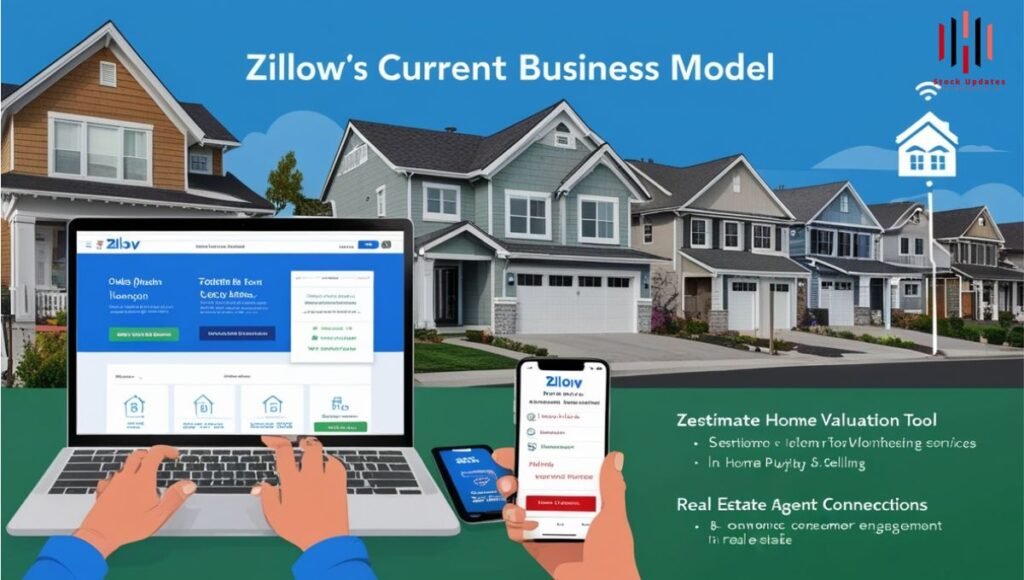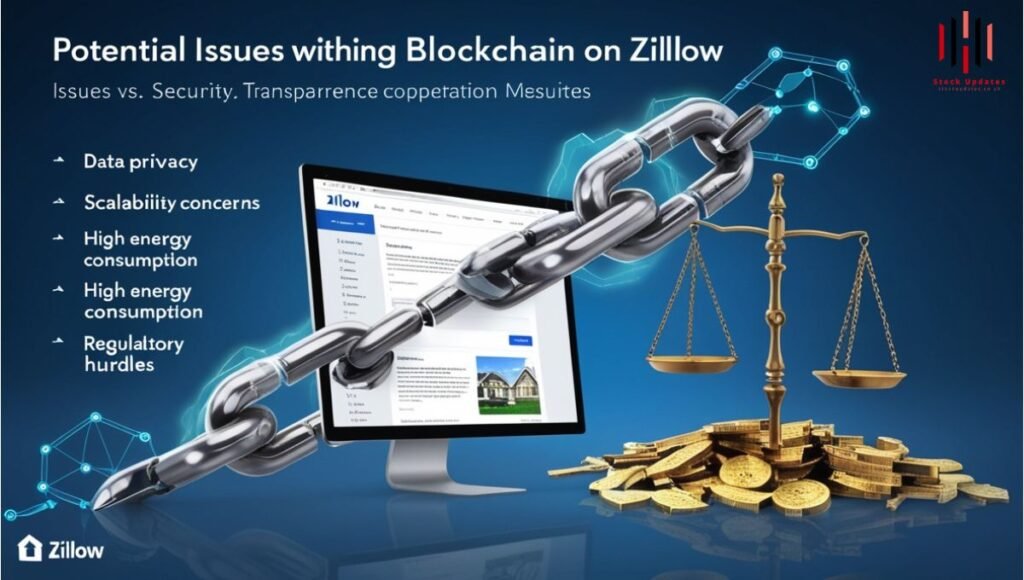Zillow Blockchian: A Comprehensive Guide
This is one of the most interesting innovations which have not yet expanded widely in the field of real estate. In the past, Zillow Blockchian was employed mostly in combination with something like Bitcoin, while right now this technology is being incorporated into more and more sectors that are basically not connected with finances at all, and it would appear, with the housing market and real estate, where services such as Zillow Blockchian have started to experiment with.
This blog post aims to discuss the possibilities of disrupting a conventional real estate market through the use case of Zillow, an online market place for real estate. Next, we will analyse advantages and disadvantages of implementing blockchain technology into Zillow organizational environment and its impact on the company’s business model.
What is Blockchain?
So, let my first discuss what blockchain is before going deeper into explaining how Zillow Blockchian might use it. In a nutshell, blockchain can be described as a distributed database that contains information from multiple parties about multiple transactions and can also be simply described as a public record of public transactions that cannot be faked. Of course the most familiar use of the blockchain is through Bitcoin, however this concept is much broader and has numerous applications.
Blockchain can find application in recording ownership transaction in real estates, storage and protection of property details, and execution of real estates functioning through smart contracts. Blockchain has benefits including removal of middlemen, reduced cases of fraud and enhanced openness in conducts of property deals.
Zillow’s Current Business Model

Zillow Blockchian is one of the leading online real estate marketplace companies performing tasks such as buying, selling, and even renting of homes in the United States. Its business model is based on providing full information about the properties for sale, including photos, descriptions and prices, previous sales. Other features include Zillow Zestimate, an econ value home estimator that will suggest the value of a home based on data obtain from the public.
Nevertheless, growth has not made Zillow immune to the difficulties which have haunted the sphere of real estate for many years. Some are that property purchases and sales take a long time and uses many papers, many intermediaries participate, and there are no proper prices for the properties.
How Blockchain Can Revolutionize Zillow and the Real Estate Industry
In the case of Zillow Blockchian and the market for real estate, blockchain can provide several forms of value. Here are some ways it could revolutionize how the real estate industry operates:
1. Decentralized Property Listings
Most market listings are in central bodies like MLS or third-party systems like Zillow and other. This process might in future be decentralized by using Blockchain technology to provide peer to peer listing comparable to those above but which are public and permanent. Both sellers and buyers could overcome the channel intermediary and get a lower cost with higher levels of efficiency.
2. Residential Real Estate and Titles
Zillow could use it in order to offer the property users, information that they can verify instantly for ownership. It would go along way to minimize fraud, but it would also bring a dramatic change to the process of buying homes, turning these existing inefficiencies into non-issues such as lengthy title searches.
3. Smart Contracts for Property Interactions
Smart Contracts are electronic contracts that contain digital program code to automatically perform an agreed obligation. All this would minimize the interception of third parties such as notaries or lawyers hence making the whole process faster and less expensive.
4. Tokenization of Real Estate
Real estate tokenization entails transforming property into digital tokens where shareholders own small fractions in the property. As a major benefit of tokenization, users could trade fragments of property ownership – which, in turn, would increase the real estate market’s liquidity.
5. Higher Level of Transparency and Security
For Zillow, this means to offer potential buyers all kind of information concerning the history of a certain property, including former owners, transaction amounts and all other aspects and details – without further check by a third party.
Possible issues with the use of Blockchain on Zillow

This being the case, the actual application of blockchain in Zillow’s business framework has its drawbacks.
1. Regulatory Hurdles
There are legal requirements that state laws have set for the real estate industry that regulates the process of selling a property among the states. The usage of blockchain might include legal issues with applying the current property law since it does not support decentralized structures or smart contracts. In particular, to implement blockchain, Zillow would have to coordinate with legislative and executive authorities to make sure that blockchain use conforms to current legislation.
2. Adoption Resistance
The real estate industry especially is held back by its archaic, paper-intensive methods, and while some players may be eager to automate, others may be resistant to change. It also crucial to understand that the consumers themselves, which may include real estate agents, buyers, and sellers are likely to resist using the blockchain as they may have little knowledge or understand how it is used.
3. interface to Current Systems
The primary system behind Zillow’s operation is already incredibly intricate; the company has to work with MLSs, real estate agents, and other financial organizations. While adopting blockchain into this somewhat established environment might be a complex process and require significant investments. For Zillow, it would be crucial to make sure the integration of blockchain is smooth with all its current processes and help to make users’ experience better.
4. Scalability and Efficiency
One of the primary problems of blockchain networks, particularly decentralized ones, is the issue of scalability. Because as the number of transactions rises the network can slow down or become less efficient.
Benefits and Limitations of Blockchain for Zillow
| Benefit | Limitation |
| Decentralization: Reduces reliance on central authorities for property listings. | Regulatory Challenges: Blockchain technology may not align with current legal frameworks. |
| Transparency: Every transaction is recorded on a public ledger, providing full visibility into property histories. | Adoption Resistance: Users and industry players may be slow to embrace blockchain technology. |
| Security: Blockchain’s immutable ledger reduces the risk of fraud and hacking. | Integration Complexity: Integrating blockchain with existing systems could be costly and challenging. |
| Smart Contracts: Automates transactions, reducing the need for intermediaries and speeding up processes. | Scalability: Blockchain networks may struggle with handling large volumes of transactions quickly. |
| Tokenization: Allows for fractional ownership, opening up investment opportunities for more people. | Education and Awareness: Users may lack knowledge about blockchain, requiring extensive education efforts. |
Future of Zillow and Blockchain
Despite a full year’s experience in real estate, the future of zillow and blockchain technology is still very unstable. Al though, if Zillow is able to integrate blockchain technology to its services then it would pave way for constructing a transparent, secure, and more efficient Real Estate Market.
There will also be threats, which Zillow will need to avoid on regulation, technical, and market adoption issues. When done right, blockchain can be an integral part of the game plan at Zillow, putting in place the infrastructure for a revolutionized real estate market.
Regardless of the fact, whether Zillow will indeed become a trailblazer of using blockchain for real estate transactions or not, one might expect further advancement of blockchain solutions to shape the future of property purchasing and selling.
Read more About Blockchain & Crypto and other categories At Stock Updates.
























Post Comment